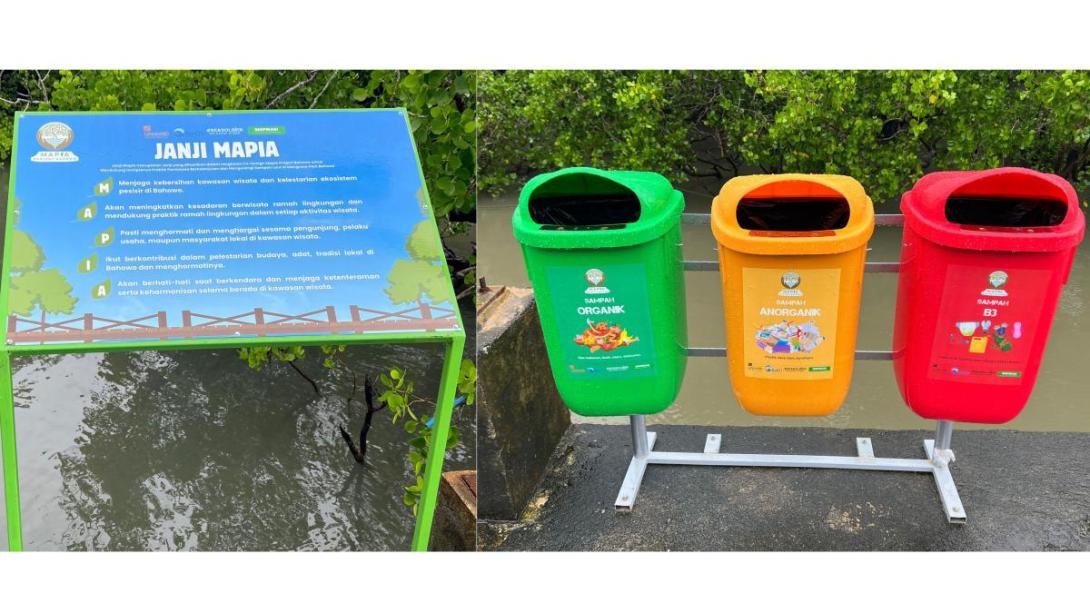
After the MAPIA Project Bahowo was implemented, Bahowo coastal area has become cleaner, visitors are using waste bins for proper disposal, and we, as the local community, have become more aware of environmental cleanliness. We hope this progress can be sustained, and as MAPIA Soldiers, we remain motivated to set an example for others in Bahowo.
— Participant of Mapia Project Bahowo (Mapia Soldier Member)
The goal of the project is to reduce marine debris through a sustainable tourism approach in the Bahowo coastal area using a participatory process.
Main Objectives:
- Re-imagining process to co-create solution ideas for the marine debris problem in the Bahowo coastal area with a sustainable tourism approach.
- Testing the solution ideas or marine debris problem in the Bahowo coastal area with a sustainable tourism approach.
- Support activities that are relevant to sustainable tourism with the local community.
Mapia Project Bahowo was designed to tackle environmental challenges and promote sustainable tourism in Bahowo, North Sulawesi. Through extensive data collection and focus group discussions with the local community, government, youth, and religious leaders, it became clear that the coastal village faced serious waste management issues that threatened its natural beauty and marine ecosystems. Addressing these challenges was essential to preserving Bahowo’s environment and enhancing its appeal as a tourist destination.
The project focused on building waste disposal infrastructure and educating both locals and visitors on proper waste management. A key aspect of the initiative was empowering the local community through training programs that equipped them to manage the tourism area responsibly. This ensured that the economic benefits of tourism were retained locally while fostering a culture of environmental stewardship.

Additionally, the project adapted New Zealand’s Tiaki Promise into a localized version called Mapia Promise, inspiring both locals and visitors to commit to protecting Bahowo’s natural and cultural heritage. Using a citizen science approach, the project engaged the community in environmental action through a mangrove cleanup initiative. This effort not only helped restore the area but also educated residents about the impact of plastic pollution while enabling them to collect valuable data for conservation efforts. Through these combined efforts, Mapia Project Bahowo successfully promoted sustainable tourism and environmental conservation, ensuring a cleaner, greener future for the region.
I was very pleased with the active participation of the community during the implementation of the Mapia Project Bahowo. Moving forward, beach and mangrove cleanups became a monthly program of Seasoldier North Sulawesi in collaboration with Mapia Soldiers. Hopefully, good communication and cooperation continued to be maintained to promote sustainable tourism practices and prevent waste from leaking into the sea in the coastal area of Bahowo. (Samuel Leivy Opa)

